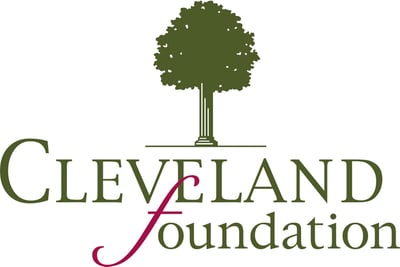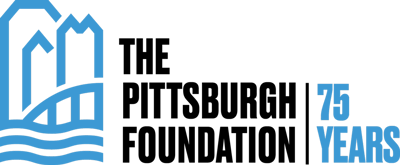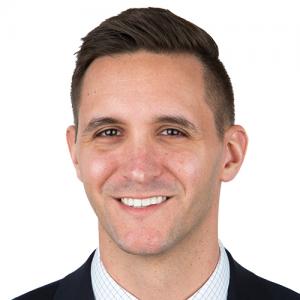Community Philanthropy Update - May 2021
Foundations and donors of all kinds have responded in creative and impressive ways to COVID-19, as well as the other crises of the previous year. Community foundations have served as beacons of hope and safety, educators and public health outlets, and conduits for vital aid during the pandemic. As things begin to re-open, we can co-create a new normal alongside the diverse people and institutions who have served their neighbors and each other during the COVID-19 pandemic.
Community foundations are far more than fund holders and grantmakers: you host community meeting places and serve as conveners who are uniquely positioned to bridge divides, and you can unite disparate people and positions. You do this well because you focus on the needs of the community and all of the diversity and complexity that entails. In the past year, I’ve noticed many of you are facilitating new kinds of conversations or taking public stances that you may not have taken historically and doing the important work of bringing your communities along.
Some communities may appear more homogenous, but when you look underneath the surface, you will find many dimensions of diversity in all communities – people who are living with disabilities, LGBTQIA members, those of a variety of incomes and educational backgrounds. Building bridges requires the important work of uniting, consensus building, and healing divisions because we can only make progress on thorny issues by building trust with stakeholders, empathizing with those who have a different perspective, and ultimately reclaiming our community.
At the upcoming Leading Together 2021 conference, sector leaders will discuss how we can build trust, equity, and common ground within our institutions, communities, country, and across the world. If you are already planning to join us, I can’t wait to virtually see you there. If you haven’t yet registered, I hope you will consider joining us.
As community foundations, you understand better than many that to lead, we must lead together. As we move forward, there will be many opportunities for us to dig into these issues together and engage in the hard work of building common ground.
Until next time,

Kathleen Enright
President & CEO
president@cof.org

Leading Together Preconference Session: Reclaiming Community
June 14 | 12:00 p.m. ET | In partnership with CEONet
Designed by and for community foundation CEOs, this preconference session will focus on the critical role community foundations play in building community. Register Now >>
Leading Together Preconference Session: Pushing the Policy Envelope: Foundations Acting in a Pivotal Time
June 14 | 12:00 p.m. ET | In partnership with Philanthropy CA
Hear from thought leaders, foundation executives, and advocates who are working at the forefront of social change and challenging existing policies that maintain the status quo.
Register Now >>
Leading Together Preconference Session: Grappling With Global Threats From Within and Without
June 14 | 12:00 p.m. ET
Join us as we examine the most pressing challenges facing global funders and the communities they serve, and how foundations can work effectively across borders.
Register Now >>
Leading Together 2021
June 14-17 | A Virtual Experience
The gathering for philanthropic leaders to connect on issues, engage in transformative conversations, and build the trust needed to create real change.
Register Now >>
Legal Matters for Community Foundations
June 29-30
Led by the Council's legal team, this workshop is designed to answer your broad legal and practical questions on administering funds, grants, and community foundation activities.
Register Now >>


The Cleveland Foundation
"Climate change is not a distant threat – it's happening right now,” says Cleveland Foundation CEO and President Ronald Richard. The foundation is part of a growing legion of community foundations that have mobilized against climate change. Read more about the Cleveland Foundation’s steps to combat climate change.

The Pittsburgh Foundation
Embracing the emphasis on reducing burdens on nonprofits that swept the sector in the wake of COVID-19, the Pittsburgh Foundation announced that it has simplified its grant application process. Learn more about how Pittsburgh has acted on the feedback of partners and staff.

Orange County Community Foundation
Approximately 47% of homeless individuals in the US reside in California. Recognizing their unique opportunity to enact a place-based solution, the Orange County Community Foundation hosted Help Them Home: A Giving Day for OC’s Homeless and raised $2,163,132 to combat homelessness. See how they did it.
Have a story of impact you want to share? Email us at communityfoundations@cof.org.

Trending Philanthropy Exchange Conversations
The Philanthropy Exchange is a peer-to-peer platform that connects Council members around shared interests, topics, or resources.
- Foundation Organizational Structure – Human Resources Exchange
- Scholarships Requiring Return To Local Community and Service for a Number of Years – Open Exchange
- How Can We Be More Racially Equitable in Our Employee Selection Process? – Open Exchange
- Working with Service Clubs – Open Exchange
- Meeting Notes: PhilEx Live – Accepting Cryptocurrency Gifts – Open Exchange
Legal Question of the Month with Ben McDearmon, Staff Counsel
Question: Is there a legal clarification between using the term "sponsor" versus "agent" when a community foundation enters into a fiscal sponsor/agent agreement?
 Summary Answer:
Summary Answer:
Although the terms “fiscal agent” or “fiscal agency” are sometimes used by community foundations when they mean to refer to a fiscal sponsorship, we always try to stress that this is inaccurate and should be avoided.
Using the words "agent" or "agency" creates the appearance that there is a principal/agent relationship between the sponsored project and the foundation, with the foundation serving as an agent of the project. This would imply that the sponsored project directs or controls the activities the foundation carries out on the project’s behalf. If there were a true principal/agent relationship created by such an arrangement, contributions received from donors would be deemed as contributions made to the principal (the project) paid to its agent (the foundation), which would mean donors’ contributions would not qualify for a tax deduction.
Council Members can access the full analysis on cof.org and send any legal inquiries to legal@cof.org.
New & Noteworthy
- A shortage of affordable housing in Nashville, TN, prompted four foundations to offer a loan guarantee to Tennessee nonprofit Urban Housing Solutions in order to house families in the median income bracket. The loan-guarantee fund allowed the four contributing foundations to mitigate risk and use their endowment without making grants directly to the developer, a mechanism becoming a more common practice among community foundations.
- Community foundations from both sides of the US-Mexico border banded together to complete mapping research on transnational communities. In partnership with Connecting Communities in the Americas, these 15 foundations analyzed the positive impact of transnational communities on their regions of destination and learned new strategies for community engagement. Learn more about the process in the CCA report.
- When disaster strikes, community foundations are often on the front lines alongside their nonprofit partners and FEMA to minimize damage and support local families. President Biden announced that he will double FEMA funding for emergency management efforts as peak disaster season in the US approaches.



